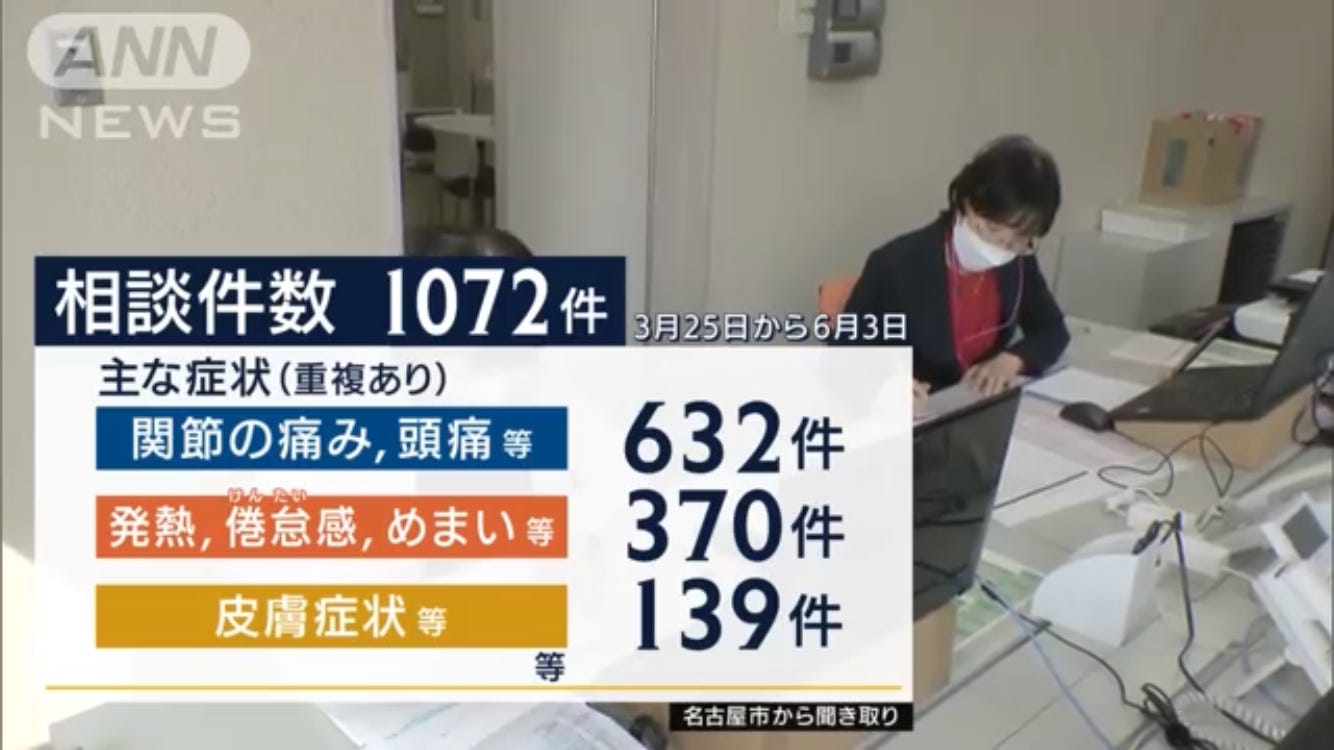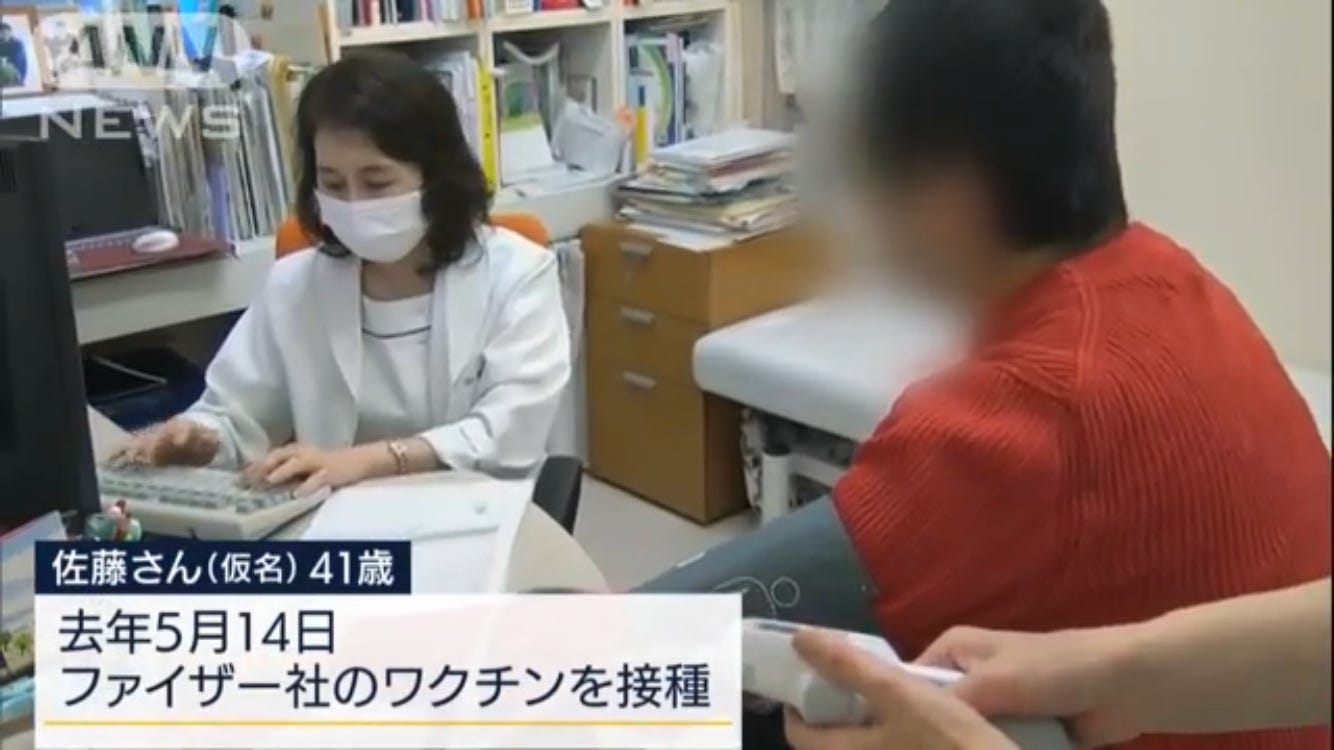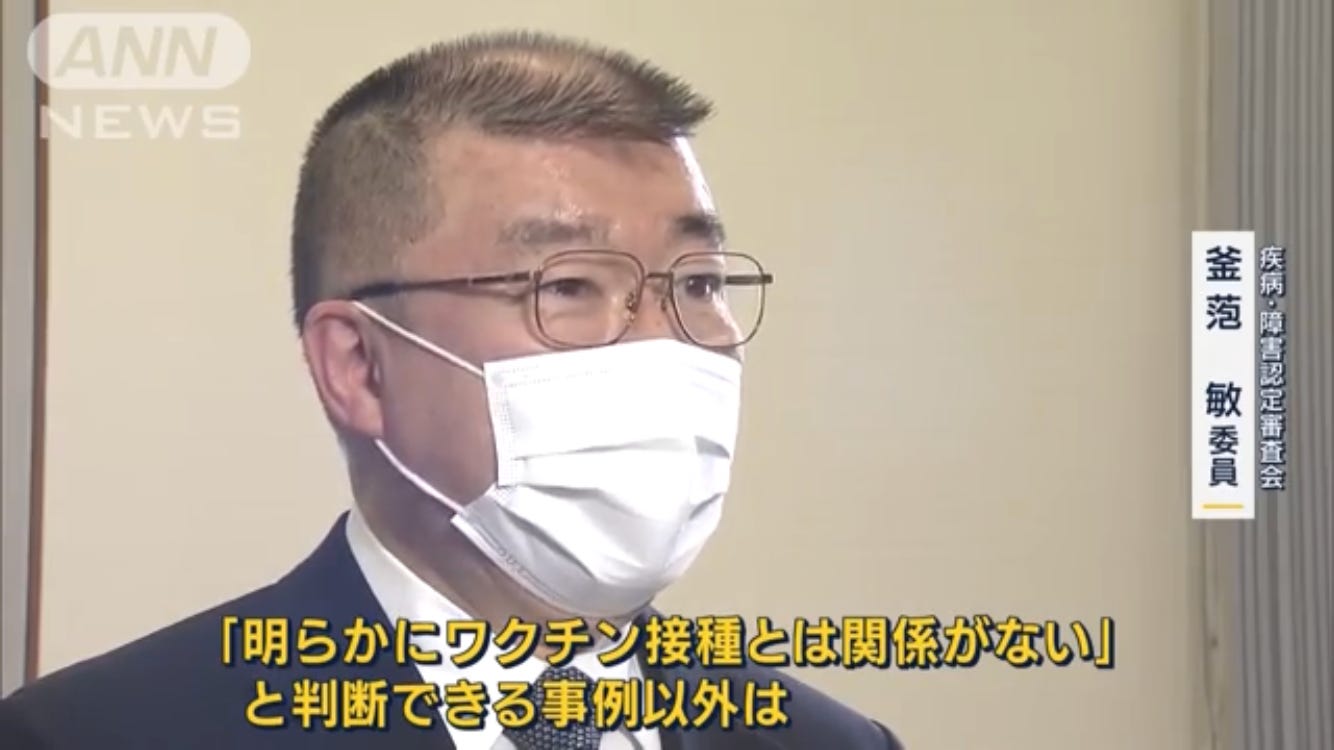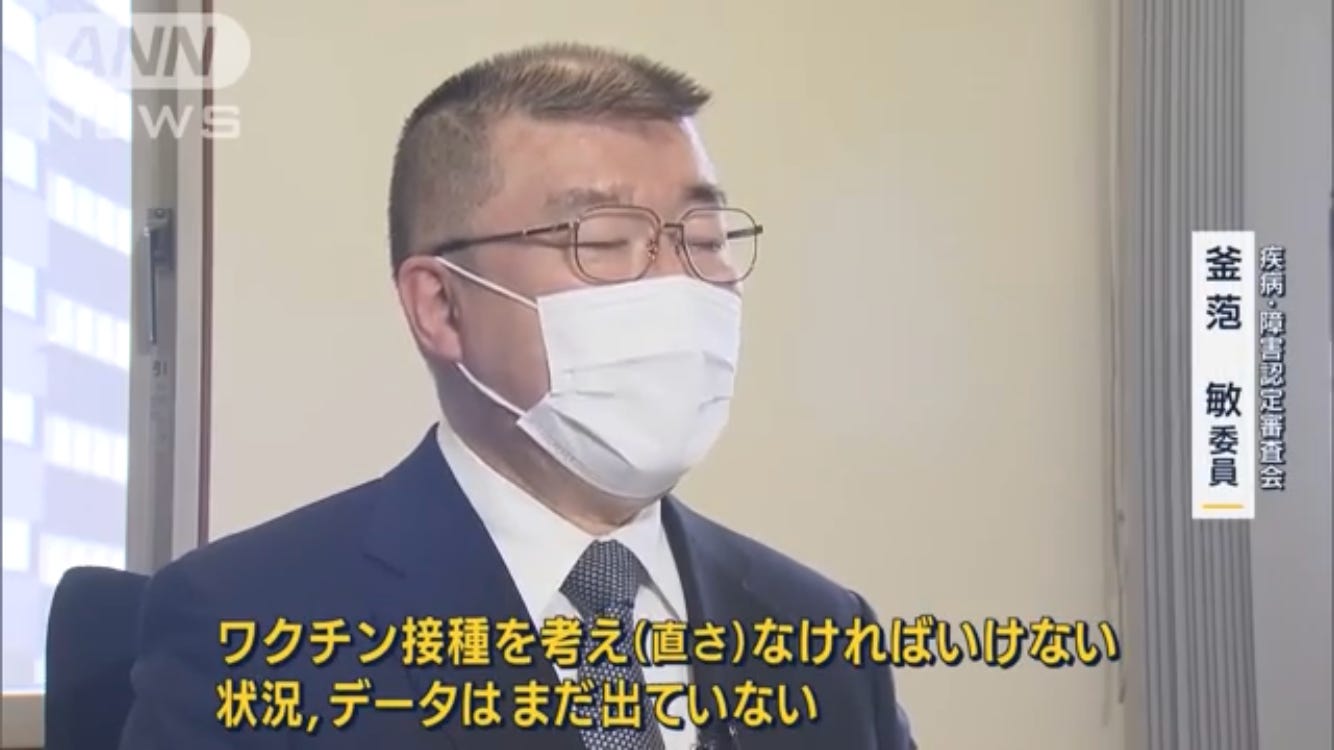Japanese TV semi-honestly reports on post-vaccine adverse events
And comes to the inevitable conclusion
In March, Japanese TV reported on people suffering from post-vaccine syndrome. I wrote it up since it was far more honest than most of the gaslighting produced by mainstream English-language broadcasters on the topic of Covid vaccines (and 99.9% of Japanese broadcasting if we’re being honest).
Last week, Japanese TV broadcast another segment on long-term vaccine adverse events (AEs) (the original can be viewed here), so let’s see what it showed.
The segment starts by saying that Nagoya City (pop 2.3 mil) opened a consultation line for people suffering from AEs in March. Up to 3 June, it had received 1072 calls, with 632 cases of join pain, headaches, etc.; 370 cases of fevers, fatigue, dizziness, etc.; and 120 cases of skin conditions.
Skin conditions, you say?
The segment next focuses on the cases of a 41-year old male given the pseudonym of “Mr Sato” who received the Pfizer vaccine on 14 May 2021.
Soon after the shot, he suffered an anaphylactic shock. One week later, the unfortunate Mr Sato started experiencing headaches, full body pain, paresthesia, and fatigue. He gradually lost hearing in his left ear. And 7 months after the vaccination, he started suffering from palpitations. All in all, he’s had a pretty rough year.
Needless to say, he needs medication morning, noon, and night. He says an 80-capsule box of painkillers lasts him half a month. He still manages to go to work during the week, but he spends most of the weekend sleeping.
Mr Sato isn’t the only person to have reported post-vaccination AEs in Japan. The below image shows hard copies of all AEs reported by medical institutions to the national government. That’s a lot of paper!
Reported AEs include anaphylaxis, impaired breathing, impaired walking, and impaired cognition. Specific cases mentioned are one person who suffered higher cerebral dysfunction a day after vaccination and a previously healthy young woman who is now wheelchair-bound.
For the Pfizer vaccine, there were 28,484 AE reports and 205,121,596 doses given up to 14 April 2022, leading to an AE report rate of 0.0139% (i.e., about 1 in every 10,000 doses).
This presentation is slightly deceptive since one person can have multiple doses but makes only one AE report, so the AE report rate per 10,000 people vaccinated would be higher. The segment also neglects to mention the under-reporting factor, whereas Nikkei Business published Prof Tsugumichi Sato saying that only 1 in 10 AE’s are reported. Clearly TV viewers can’t be trusted with the same level of honesty as the readers of pay-walled business magazines.
So what is Japan doing to help the vaccine-injured? Well, if your ill-health is judged to be due to the vaccine, the national government will offer financial assistance. The key word here is “if”. As reported in the March segment, the government has been rather reluctant to recognise long-term AEs.
The segment then interviews Dr Satoshi Kamayachi, a member of the Ministry of Health, Labour, and Welfare’s board for judging the causal relationship between Covid vaccinations and reported AEs. He starts off by being surprisingly reasonable, saying that unless the Covid vaccine is clearly unrelated to reported long-term AEs, the national government will move towards giving as much financial aid as possible.
But this is Japanese TV and Dr Kamayachi is involved with the MHLW, so you know what he’s going to say next!

The benefits outweigh the risk! They always do.
Mr Sato wasn’t asked for his opinion on this.













